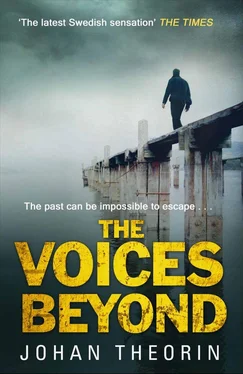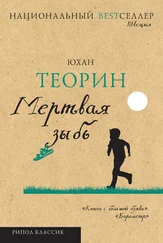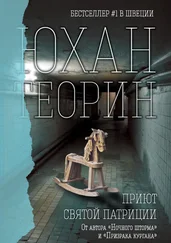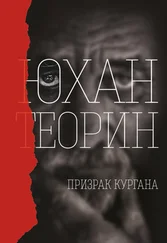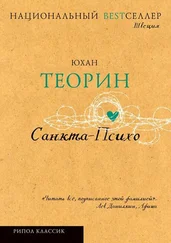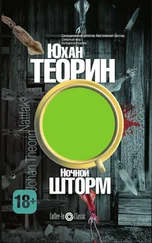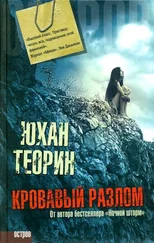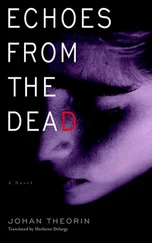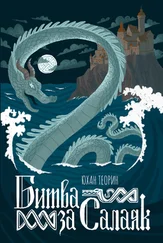Gerlof turned and went out into the corridor.
‘Hello?’ he called out. There was no response, so he raised his voice like the former sea captain he was. ‘Hello! Anyone there?’
A young woman appeared. She wasn’t the care assistant he had spoken to before, but they were similar. ‘What’s happened?’
‘This room,’ Gerlof said, pointing with his stick. ‘You need to cordon it off and call the police.’
The girl looked bewildered. ‘Sorry?’
Gerlof tried to look as authoritative as possible and to sound utterly sure of himself. ‘This is a crime scene. Greta Fredh was murdered in that room.’
On Saturday, the sky was grey above Villa Kloss. There wasn’t a breath of wind along the coast, but darker clouds were gathering over the mainland. It felt as if there was a storm on the way.
Jonas worked hard all day, brushing oil into Veronica’s decking, and at quarter past seven in the evening he finished the very last section. His aunt had already paid him, and he had put the envelope containing the money under his pillow, along with his wages from Uncle Kent.
Jonas narrowed his eyes and glanced up at the sun as he put away the brush and the tin of oil. He didn’t want to think about sandpaper, wood oil or decking ever again. He was thinking about the money now, and the fact that he and his father were going home. Veronica had promised to drive them tomorrow after lunch.
Mats had already left; he had caught the bus to Kalmar on the main road this morning.
Jonas cycled over to the Davidsson family’s cottage to say goodbye, as was the custom when someone was leaving the island to go home. Kristoffer was there, along with his mum and dad, but Gerlof had moved back to the residential home in Marnäs.
Jonas rode home in the sunset, feeling a little disappointed; he was sorry not to have seen Gerlof one last time.
The summer was almost over but it was still mild, and Jonas left the door of his chalet open when he went to bed, to let in the night air. Needless to say, it was almost as warm as the air inside the room.
He looked at his watch one last time: nearly ten o’clock. The garden was darker than usual, because someone had turned off the lights around the pool and down by the drive. But the alarm was switched on; Jonas could see the green flashing diodes.
He slid down in his bed, the sound of the crickets filling his ears. He didn’t think he would miss their loud chirping when he got back to town, although it was actually quite calming, a kind of rhythmic chomping from some invisible machine out there in the grass.
Suddenly, the crickets fell silent. Not for long, just a brief pause as if the needle on a record player had been lifted for a few seconds. And then they gradually resumed their song.
Was there someone out there? An animal? Or a person? Jonas listened for a while, but the crickets had returned to their usual rhythm.
He turned over, lay on his back. Through the white curtain, he could see the round moon suspended above the rocks and the Sound. Perhaps it was the full moon that was making the crickets sound so peculiar.
The bed was warm, but the sheets were lovely and cool. Outside, he could hear low voices; it sounded as if his father had come home from his last shift at the restaurant and was saying goodnight to Casper and Urban.
There had been no sign of Uncle Kent all day. Which was fine.
Jonas closed his eyes.
After a while, the voices fell quiet, then he heard footsteps and muted thuds from the other chalets as Casper and Urban went to bed, then there was silence.
The room seemed to get darker. Jonas slowly slipped away into the shadows of the summer night, as if a sooty grey fog had crept in under the door and wrapped itself around him. But he was tired, so very tired, and there was no danger here. No cairn ghost.
Only a guardian angel.
An angel was standing by his bed, tall and still. The angel placed a hand over his face, and whispered that everything was all right.
Sleep, just sleep.
The angel’s soft white hand was still there. And that was fine, everything was peaceful. Jonas sank deeper and deeper, down towards the bottom of the sea.
A little part of him knew that this was wrong, that is was dangerous to sink this deep, but by that time he couldn’t do anything about it.
The three guest chalets stood side by side towards the back of the extensive plot that made up Villa Kloss. When the sun had gone down and the chalets were in darkness, there was no light here.
There was an alarm, but Aron knew the code, of course.
Silently, he opened the door of the chalet on the left. The room smelled of chloroform, thanks to the bottle he had found in Einar Wall’s boathouse.
There was a boy lying in the bed inside. A white handkerchief soaked in chloroform had been placed over his face, so he was fast asleep. A deep sleep beneath a white mask.
Good.
Aron picked him up. The boy’s breathing was calm and even as he was carried out of the chalet, across the grass and over to the far end of the garden, where a low wall ran alongside a narrow dirt track.
Aron stepped over the wall and on to the track. His car was parked a short distance away in the darkness. Keeping one arm around the boy’s back, he opened the boot and gently placed the thin body inside.
Then he closed the boot and turned around to visit the boy in the next chalet.
There ought to be room for two boys in the boot, and the third one could go on the back seat. There was no danger of suffocation — they wouldn’t be going far.
It was eleven thirty now.
In an hour, Aron would be back here on the coast for his final encounter with the Kloss family.
Aron carries on seeing Ludmila, when she is not away because of her work. He misses her, of course, but he is more balanced now, a middle-aged man quietly working for the KGB. He has a new car, a white Volga.
It is slightly easier to travel now. The Soviet Union has opened up, slowly and cautiously, after the death of Stalin, and no one comes knocking late at night any more. Political dissidents are interrogated and imprisoned, but there are no longer any quotas involving thousands of class enemies. Aron’s gun remains in its holster.
There are, of course, memories of the past, among both the hunters and the hunted, but no one talks about them. There is an old Soviet saying: ‘Let he who mentions the past lose an eye.’ People may no longer believe in a future paradise, but they want peace and quiet.
Mila continues to work as a nurse, but one particular job has made her ill. In the autumn of 1960, she travelled south, was away for several months and returned with fear in her eyes and a terrible cough. She has been coughing ever since, a dreadful rasping that is worst at night. And when she does manage to get to sleep, she sometimes wakes up with a start, screaming.
Aron doesn’t ask any questions. Either Mila doesn’t want to tell him what happened, or she’s not allowed to, and that’s fine. He has secrets of his own.
They get engaged in May 1961 and marry the following year. Not in God’s name, but in the name of the state — a dignified, low-key ceremony at the Central Registry Office.
Aron and Mila can now move in together, but Vlad’s tiny apartment is not suitable. A recently renovated two-room apartment is waiting for them on Petrovka Street.
Aron never thought he would be someone’s husband but, at the age of forty-three, that is exactly what has happened. He just wishes that his mother and his sister, Greta, could see him now.
In time, they have a child, a daughter who is born in 1972, when Mila is thirty-eight years old. She is a much-longed-for baby, because Mila has had two miscarriages. Aron wonders if this is related to her illness.
Читать дальше
